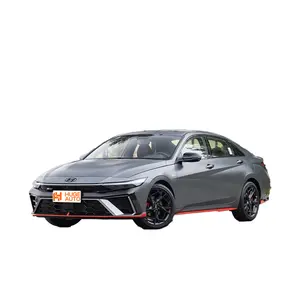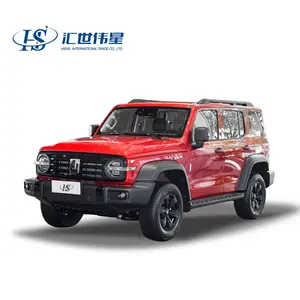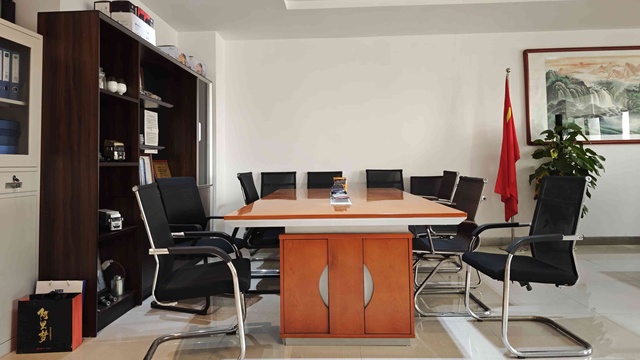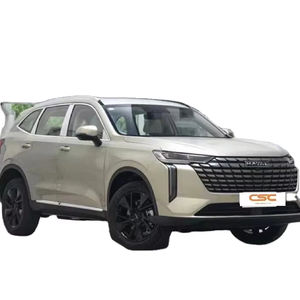Largest Automaker In The World

 1/20
1/20







 CN
CN


 1/12
1/12







 CN
CN


 1/2
1/2







 CN
CN


 1/2
1/2









 1/2
1/2
About largest automaker in the world
Where to Source the Largest Automaker in the World?
China has emerged as a central hub for automotive manufacturing, particularly in new energy vehicles (NEVs) and large-scale passenger cars. Industrial clusters in Shandong, Shaanxi, and Qingdao provinces host vertically integrated production ecosystems that combine R&D, component sourcing, and final assembly under one supply chain. These regions benefit from state-supported infrastructure, access to battery raw materials, and proximity to major ports, enabling efficient export logistics. Suppliers in these zones typically operate multi-line facilities capable of producing gasoline, electric, and hybrid models with monthly outputs ranging from 500 to 2,000 units.
The competitive advantage lies in localized manufacturing networks where chassis fabrication, powertrain integration, and interior customization occur within tight geographic radii. This reduces lead times to 30–45 days for standard orders and allows flexible MOQs starting at 1 unit. Buyers gain access to scalable production capacity, cost efficiencies (up to 25% lower than Western OEMs), and rapid prototyping capabilities for custom configurations. Key product categories include luxury sedans, full-size SUVs, electric trucks, and high-speed NEVs with advanced driver-assistance systems.
How to Evaluate Automotive Suppliers for Scale and Reliability?
Procurement decisions should be guided by systematic verification protocols focused on operational capability, quality assurance, and transactional transparency.
Production Infrastructure Assessment
Prioritize suppliers with verifiable factory operations and technical capacity:
- Minimum facility size of 5,000m² to support volume production
- In-house engineering teams for vehicle design, electronics integration, and software calibration
- Certified welding, stamping, and paint shops for end-to-end control
- On-site testing for battery performance, torque output, and range validation
Cross-reference delivery records—target suppliers with ≥97% on-time fulfillment—to confirm operational consistency.
Quality and Compliance Verification
Ensure adherence to international standards:
- ISO 9001 certification for quality management systems
- CE marking or equivalent for European market compliance
- RoHS compliance for electronic components and battery systems
- Third-party inspection reports covering crash simulation, emissions, and electrical safety
Request documentation for radar integration, seat heating circuits, and ADAS functionality where applicable.
Transaction Security Measures
Mitigate risk through structured procurement practices:
- Use escrow-based payment terms until vehicle inspection at destination
- Select suppliers with transparent online revenue histories and reorder tracking
- Conduct pre-shipment audits via video walk-throughs or third-party inspectors
- Require sample units for benchmarking before placing bulk orders
What Are the Leading Suppliers for Large-Scale Automobile Production?
| Company Name | Location | Main Products | Price Range (USD) | MOQ | On-Time Delivery | Avg. Response Time | Online Revenue | Reorder Rate |
|---|---|---|---|---|---|---|---|---|
| Qingdao Csd Auto And Equipment Co., Ltd. | Qingdao, CN | Luxury Sedans, SUVs, Gasoline Cars | $29,500–89,900 | 1 unit/set | 100% | ≤7h | Not disclosed | Not disclosed |
| Shandong Sunyu Industrial Co., Ltd. | Shandong, CN | Electric Vehicles, Golf Carts, Tricycles | $3,400–11,000 | 1 set | 100% | ≤2h | US $10,000+ | <15% |
| jiachen group inc | China | New Energy Vehicles, Electric Trucks, Radar-Equipped SUVs | $15,000–203,136 | 1 piece/unit | Not disclosed | ≤4h | Not disclosed | Not disclosed |
| Shaanxi Haochi Automotive Technology Co., Ltd. | Shaanxi, CN | NEVs, Luxury SUVs, Charging Solutions | $8,530–69,800 | 1 unit/piece/set | 100% | ≤3h | US $50,000+ | <15% |
| Pragmatic Auto ApS | Denmark / China Sourcing | Used Cars, BMW Models, Electric Vehicles | $2,000–3,000 | 1 unit | Not disclosed | ≤4h | Not disclosed | Not disclosed |
Performance Analysis
Qingdao Csd Auto and Shaanxi Haochi demonstrate strong export readiness with 100% on-time delivery and diversified portfolios spanning premium sedans and NEVs. Shandong Sunyu stands out for responsiveness (≤2h average reply time) and consistent fulfillment, though its lower reorder rate suggests limited post-sale engagement. Jiachen Group offers ultra-premium EVs like the Xiaomi SU7 Ultra (priced over $200K), indicating niche positioning in high-performance electric vehicles. Shaanxi Haochi’s inclusion of portable charging stations and auto parts highlights vertical expansion beyond整车 manufacturing. Pragmatic Auto ApS focuses on used imports, catering to budget-conscious buyers but lacking data transparency on origin and refurbishment standards.
FAQs
How to verify an automobile supplier’s authenticity?
Cross-check business licenses with local commercial registries. Request audit trails for production batches, including battery cell sourcing and motor certifications. Validate claims through third-party inspection services such as SGS or Bureau Veritas.
What is the typical lead time for custom vehicle orders?
Standard configurations ship within 30–45 days. Customizations involving drivetrain (4WD/2WD), interior branding, or auxiliary systems (e.g., off-road tires, kitchen modules) extend timelines to 60 days. Prototype development requires 4–6 weeks after design finalization.
Can suppliers accommodate low-volume or single-unit orders?
Yes, most suppliers listed accept MOQs of 1 unit, especially for high-value models. However, unit pricing decreases significantly at volumes exceeding 5 units, offering up to 12% cost savings.
Do manufacturers support OEM branding and design customization?
Many suppliers offer full OEM services, including logo integration, color configuration, seat embroidery, and digital interface rebranding. Confirm availability of 3D renderings and CAD modeling support before order placement.
What are the shipping options for international buyers?
Ocean freight (FOB or CIF) is standard for single units and container loads. Roll-on/roll-off (RoRo) shipping is available for non-containerized vehicles. Air freight is viable only for urgent prototype deliveries due to prohibitive costs.































































































































